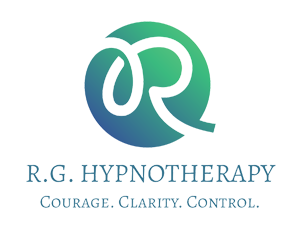In this modern age of technology, we have gotten used to being able to access anything we want, any time we want and anywhere we want, right there at our fingertips. The fast service and instant access can be thrilling, useful and completely dominating in our lives as we have access to anything we want with just the push of a button.
All we have to do is make a search, find what we want and ta-da, with a click of a button it can be all ours, while we remain in the comfort of our living room. Useful? Yes, Time saving? Absolutely.
This society demands that everything is as convenient as possible and techological advancements have created an environment where we can have anything we desire as conveniently as possible. This includes, shopping, groceries, entertainment and yes…healthcare.
When people are stuck in their homes such as in times like we are seeing at the moment, with the next lock down always lurking just around the corner, being able to access our services online is definitely better than having no access at all. And for those providing services, online avenues provide a way to keep working, to keep paying the bills.
Many forms of healthcare are very convenient done like this. Who wouldn’t prefer to wait the hour for their doctors appointment in the comfort of their own home where they can continue to be relaxed or productive over the boring old waiting room? Some forms of healthcare are, however, less able to be transferred over, take masseage or physiotherapy for example.
As a clinical hypnotherapist I often get asked about online sessions and it seems that there is much debate in the hypnotherapy world about whether hypnosis should be done online.
That is because there are no clear guidelines governing the hypnotherapy industry and while it is not illegal to conduct hypnotherapy sessions via zoom, it is also not considered best practice with associations so therapists are in essence free to do as they choose despite potential dangers.
The choices we make for our own health care are deeply personal and whether you choose to take the face to face option or give zoom a go it’s good to arm yourself with enough of the right information to be able to make an informed decision regarding your healthcare.
So with that in mind, here’s a look at both side of the debate, to zoom or not to zoom;
To Zoom
1. It’s convenient;
Everybody is busy with these great big full lives and there’s nothing more convenient than being able to access the healthcare of your choice in the environment of your choice at a time that suits you and zoom makes it extremely convenient to access these services.
2. Cost effective;
Of course it can be much more cost and time effective when you don’t have to count in travel, fuel, parking and office spaces and zoom can definitely make healthcare more cost and time effective. How much simpler is it to be able to log on and have a quick therapy session in your lunch hour or while your waiting for dinner to cook
3. Larger range of practitioners;
When you are not limited to only the practitioners you can see in person, a whole world of practitioners open up to you and you are more likely to find one that works the best for you.
4. Practitioners have a much larger client base;
Likewise practitioners suddenly have a much larger potential client base to draw on and advertise too potentially increasing profitability and sustainability.
Not to Zoom
1. Duty of care considerations;
The hypnotic state can be a vulnerable state, which can be influened by environment and as such it is the therapists duty above all to ensure that you are safe during hypnosis sessions. This isn’t possible over zoom as your therapists can not control who is with you, what they might do or say while you’re in trance. There are ways and methods of minimising this risk however many hypnotherapists aren’t actually taught these measures.
2. Visual body language that can’t be seen via zoom;
There are visual cues when a person reaches trance that the trained eye can see and informs the therapist of the state of the client moving forward. Not all of these cues can be seen online. Some cues happen in parts of the body that ca not necessarily be seen with the limited view of the camera.
3. Energy in the healing;
As with body language, there is an energy in a healing environment which can not really be accessed by either the practitioner or the client via zoom. Having that face to face contact and being in the same room means that your therapist can clearly see and feel, what is working for you in any given moment.
4. Decreased efficacy;
Digital hypnosis has been a thing for a long time now with C.D.s and tracks that you can play at home however these tracks are only designed to be an adjunct to in person hypnosis becasue they are not as effective as in person therapy and they almost exclusivley come with the direction that the C.D should ONLY be played at night as you go to bed because of the safety consideration and what could happen if you were in a trance, unsupervised during waking hours. For the same reasons, online zoom could never give you the quality of care that you deserve.
So there you have it. There are some very compelling arguments for both sides of the debate to zoom or not to zoom. Myself personally, I always prefer to work with absolute mindfulness to duty of care to the client and I don’t believe that when working with hypnosis it is possible to ensure client safety and wellbeing, so my session will always be face to face (and it’s nicer that way too).
The path to health is hugely personal and everybody comes to their own decisions in their own way and for their own reason but whichever path you choose to take for your own healthcare, make sure you are armed with all of the information before making the choice and that you are getting the very best in healthcare for yourself.










